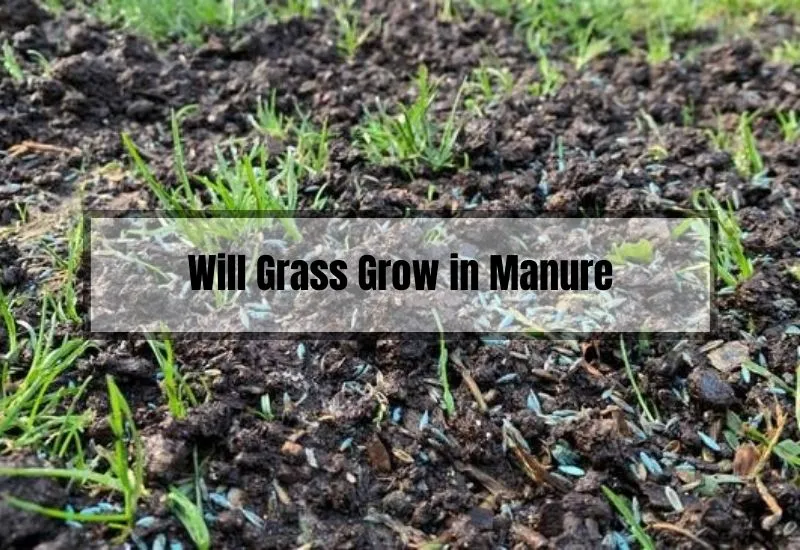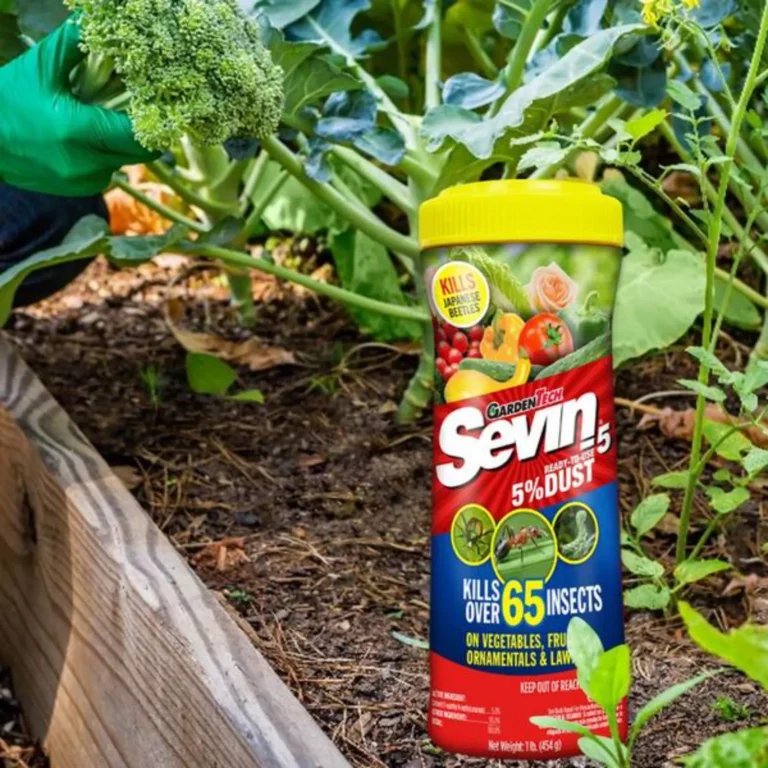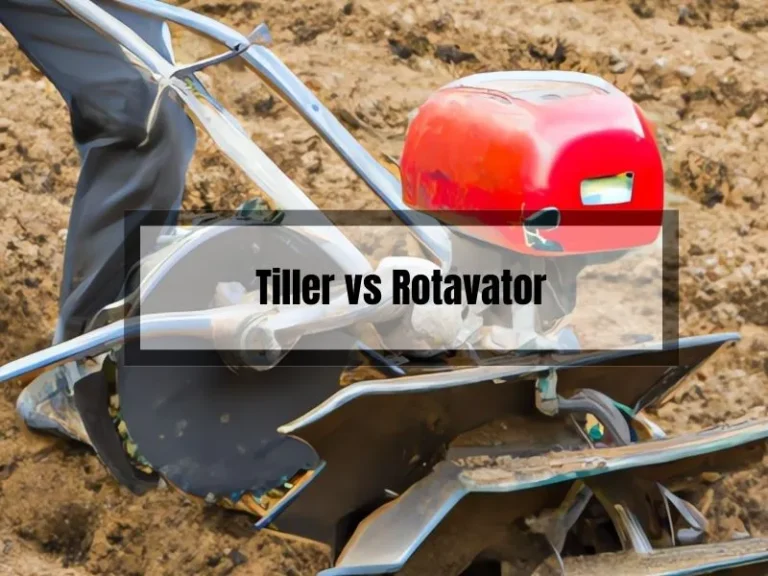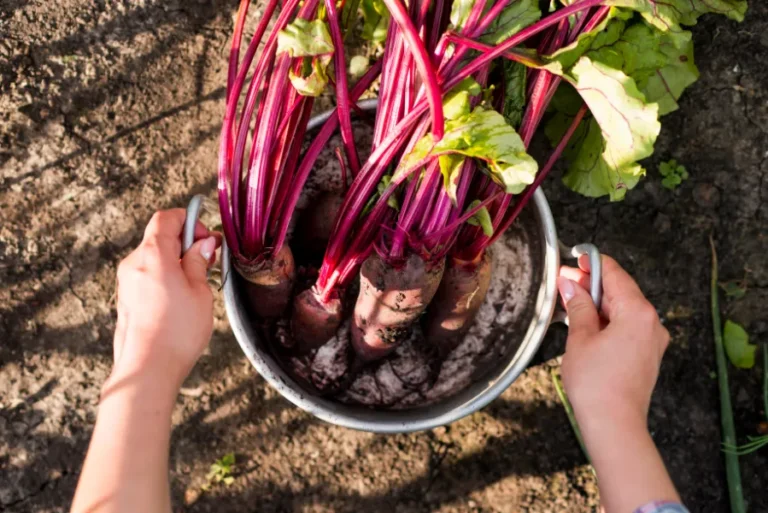Will Grass Grow in Manure? Exploring the Relationship Between Grass and Manure
If you’re struggling to maintain a healthy lawn, you may want to consider using manure as a natural fertilizer. Manure has been used for centuries to promote grass growth, and different types of animal manure offer unique benefits.
For example, cow manure is rich in nitrogen and can boost leafy growth, while chicken manure can aid root development. By incorporating manure into your lawn care routine, you can achieve a lush, green lawn that’s the envy of your neighborhood.
However, it’s important to consider potential risks and downsides before using manure as a fertilizer. For example, manure can contain harmful bacteria and pathogens that can be dangerous to humans and pets.
Additionally, overuse of manure can lead to nutrient imbalances in the soil, which can harm your lawn in the long run. By following best practices for using manure as a fertilizer, you can reap the benefits without putting yourself or your lawn at risk.
Key Takeaways
- Manure can be a natural and effective fertilizer for promoting grass growth.
- Different types of animal manure offer unique benefits for grass growth.
- Proper use of manure is important to avoid potential risks and downsides.

Will Grass Grow in Manure
If you’re looking to improve the health and fertility of your lawn, using manure as a natural fertilizer can be a great way to achieve that. The good news is that grass will grow in manure, making it an effective and affordable option for homeowners and landscapers alike.
However, it’s important to prepare the ground properly and follow best practices to ensure that your grass grows strong and healthy.
Preparing the Ground for Reseeding
Before spreading manure on your lawn, it’s essential to prepare the ground properly to maximize the benefits of using manure.
Here are some steps you can take to prepare the ground for reseeding:
- Remove any dead grass or weeds from the area to ensure that the manure is evenly distributed.
- Loosen the soil with a rake or tiller to allow the manure to penetrate the soil more effectively.
- Spread a thin layer of manure over the area, making sure to distribute it evenly.
- Use a rake to work the manure into the soil, ensuring that it’s mixed thoroughly with the soil.
- Spread grass seed over the area, following the instructions on the package.
- Water the area regularly, keeping the soil moist but not waterlogged.
Best Practices When Using Manure
While manure can be a great fertilizer for your lawn, it’s important to use it properly to avoid any negative effects. Here are some best practices to keep in mind when using manure:
- Use aged manure to reduce the risk of contamination from harmful bacteria and parasites. Fresh manure can contain these harmful substances that can be harmful to your lawn’s health and your health as well.
- Don’t use too much manure as it can harm your grass. Follow the instructions on the package and use a thin layer of manure to avoid overfertilizing.
- Spread the manure evenly over your lawn to avoid creating patches of overly-fertile soil.
- Don’t use manure from carnivorous animals like dogs and cats as it can contain harmful bacteria and parasites that can be harmful to your lawn’s health and your health as well.
By following these best practices and preparing the ground properly, you can ensure that your grass has the best chance of growing strong and healthy with the help of manure.
Related Posts:
Benefits of Using Manure as a Fertilizer

If you’re looking for a natural way to fertilize your lawn or garden, then manure is a great option. Here are some of the benefits of using manure as a fertilizer:
1. Provides Essential Nutrients
Manure is an excellent source of nutrients that grass needs to grow. It contains high levels of nitrogen, phosphorus, and potassium, which are essential for healthy plant growth.
In addition, manure also contains other micronutrients such as calcium, magnesium, and sulfur, which are important for strong root development.
These essential nutrients are necessary for healthy plant growth, and manure provides them in an organic and natural way.
2. Improves Soil Quality
Manure can improve the quality of your soil by increasing its water-holding capacity and improving its structure. This means that your grass will be able to absorb more water and nutrients, which will help it grow faster and stronger.
In addition, manure can also help to increase the number of beneficial microorganisms in your soil, which can help to break down organic matter and release nutrients. This can lead to a healthier and more productive lawn or garden.
3. Reduces the Need for Chemical Fertilizers
Using manure as a fertilizer can help to reduce the need for chemical fertilizers, which can be harmful to the environment.
Manure is a natural and sustainable alternative that can provide your grass with all the nutrients it needs to grow healthy and strong.
By using manure, you’re also helping to reduce the amount of harmful chemicals that are released into the environment.
4. Cost-Effective
Manure is a cost-effective way to fertilize your lawn or garden. Unlike chemical fertilizers, which can be expensive, manure is often readily available and can be obtained for free or at a low cost.
This makes it an excellent option for those who want to fertilize their grass without breaking the bank. By using manure, you can save money while still promoting healthy grass growth.
5. Environmentally Friendly
Using manure as a fertilizer is an environmentally friendly option that can help to reduce waste. By using manure, you’re helping to recycle organic matter and reduce the amount of waste that ends up in landfills.
In addition, using manure can also help to reduce the amount of greenhouse gases that are produced by chemical fertilizers. This makes it an excellent option for those who are looking for a sustainable and eco-friendly way to fertilize their lawn or garden.
Related Posts:
How to Use Manure for Grass Growth
Grass needs nutrients to grow, and one of the best ways to provide those nutrients is by using manure. However, not all manure is created equal, and there are specific steps you need to follow to ensure that you use manure correctly for grass growth.
In this section, we’ll take a look at the different types of manure, how to apply it, and when and how often to use it.
Choosing the Right Manure
When it comes to choosing the right manure for grass growth, you have several options. The most common types of manure used for grass growth are cow, horse, and chicken manure.
Cow manure is the most widely used because it is readily available and contains a balanced mix of nutrients. Horse manure is also a good option, but it is richer in nitrogen and can burn the grass if not applied correctly.
Chicken manure is high in nitrogen and phosphorus, making it an excellent choice for promoting grass growth. Before using any manure, it’s important to make sure it’s well-aged.
Fresh manure can contain harmful bacteria and parasites that can damage your lawn. The manure should be at least six months old before you use it.
Application Process
Once you’ve chosen the right manure, it’s time to apply it to your lawn. Start by mowing your lawn to a short length. Spread the manure over the lawn using a spreader or by hand. Use a rake to work the manure into the soil.
This will help to distribute the nutrients evenly. Water the lawn well to help the manure settle into the soil.
Avoid applying too much manure to your lawn. Over-application can lead to nutrient burn, which can damage or kill your grass. A general rule of thumb is to apply no more than 1/2 inch of manure to your lawn at a time.
Timing and Frequency
Timing and frequency are crucial when it comes to using manure for grass growth. You should apply manure to your lawn in the spring and fall when the grass is actively growing.
Applying manure during the summer months can lead to nutrient burn, which can damage your lawn. As for frequency, you should apply manure to your lawn once or twice a year. Over-application can lead to nutrient burn, while under-application can result in poor grass growth.
Potential Risks and Downsides
When using manure as a fertilizer for your lawn, there are a few potential risks and downsides to be aware of.
In this section, we’ll discuss two of the most significant: the potential for weed growth and the health risks for pets and humans.
Potential for Weed Growth
One of the most significant risks associated with using manure as a fertilizer is the potential for weed growth. While manure can provide your lawn with essential nutrients, it can also contain weed seeds that can take root in your lawn and cause problems down the road.
To minimize the risk of weed growth, it’s essential to ensure that the manure you use has been properly composted. Composting can kill weed seeds and other pathogens, reducing the risk of weed growth and other issues.
Health Risks for Pets and Humans
Another potential downside of using manure as a fertilizer is the health risks it can pose to pets and humans. Manure can contain harmful bacteria, such as E. coli and Salmonella, which can cause serious illness in both pets and humans.
To reduce the risk of illness, it’s essential to handle manure carefully and take appropriate precautions.
This includes wearing gloves and other protective gear when handling manure, washing your hands thoroughly after handling it, and keeping pets and children away from areas where manure has been applied.
Frequently Asked Questions (FAQs)
Can you put manure over grass seed?
Yes, you can put manure over grass seed. It provides nutrients directly to the seeds, promoting healthy growth. Just be cautious not to apply too much, as it can smother the seeds and inhibit germination.
How deep should the manure be applied?
A 1 to 2-inch layer of manure spread evenly across your lawn is ideal. This will provide ample nutrients without overwhelming the grass seed.
Are there any risks associated with using manure?
Manure is generally safe to use, but it’s essential to handle it with care and follow proper application techniques. Always wear protective gear and be mindful of any potential weed issues that may arise.
How can manure help with grass growth in hot regions?
Manure acts as an excellent temperature regulator, helping to keep the soil cool and moist. This is particularly helpful in hot regions where growing turf can be challenging. Manure also improves water retention, ensuring that grass seeds germinate faster.
Conclusion
In conclusion, manure is an excellent natural fertilizer that can improve the nutrient content of your soil, help your lawn recover from pest attacks, and provide an ideal environment for reseeding.
Proper soil preparation and the right application of manure are key to a healthy and lush lawn. Spread the manure evenly over the lawn in a thin layer and make sure to follow best practices to ensure that it doesn’t interfere with the germination of the grass seed.
Manure is also perfect for temperature regulation and water retention, making it a great choice for those living in hot regions. By following the recommended steps, you can ensure that your grass has the best chance of growing strong and healthy.
Remember to dispose of grass clippings properly and manage excessive grass clippings on your lawn to prevent dollar spot fungus from destroying your lawn. With a little bit of effort and care, your lawn will be the envy of the neighborhood!
Related Posts:
- Understanding if Dollar Spot Fungus is Harmful to Your Grass
- All You Need to Know: Which Weeds Does Spectracide Wipe Out
- Your Guide to Properly Dispose of Grass Clippings and Keeping Your Lawn Healthy
- Finding Solutions: How to Manage and Reduce Excessive Grass Clippings on Your Lawn
- Prevent Dollar Spot Fungus from Destroying Your Lawn: Useful Tips and Hacks





